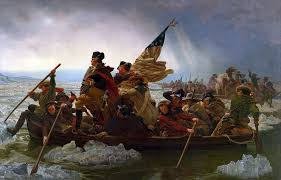All laws are ultimately backed up by “if you don’t we will send violent men after you” and we should never, ever, pretend otherwise.
Mao’s “all power comes from the barrel of a gun”, or pre-gunpowder, guys with swords or clubs, is, however, only one-third true.
What matters isn’t the violent men, it is controlling the violent men. If all power came from violence, then it would be guilds of violent men who run society directly, but as powerful as police and armies are, in most places it isn’t military men or cops who who make the laws and are in the executive positions and when they are it is usually in a second or third tier country.
Ideology, whether religious or secular, is used to control violent men. It’s about legitimacy: about who has the right to give orders and what violence is legitimate. All power comes from controlling violent men, but that doesn’t mean that the violent men are necessarily in charge, especially after the first generation. Mao was a military guy: his successors after the Long March generation aged out of power were not.
George Washington was a general, most of his successors were not and when they were, as with Grant and Eisenhower, it was generally right after an important war.
Of course there are periods of history where almost every ruler was a military man, but even in such cases, control over the violent men was what mattered. The Roman Praetorian Guard choosing emperors makes this clear.
But moving back to the first sentence: law is enforced by violent men. The idea that there is some “social contract” is nonsense. You do what you’re told because their are consequences if you don’t. Those sanctions may start with fines or losing your job, but if you decide to do things the law says you can’t, well, the violent men show up. The whole history of cops going into homeless encampments, taking all the homeless people’s possessions and destroying them makes this rather clear.
At its heart law is violent. That’s why when you make a law, you should always be thinking “is this important enough that someone should be beaten up, killed or imprisoned for it? Is it important enough to use violence to enforce?”
There is a trade-off here. There’s a fair bit of evidence that many (not all) pre-historical societies were very violent. The early kings reduce internal violence by centralizing violence. “Everyone and everything belongs to me and only I and people I give permission to get to be violent.”
Whether it reduced violence overall, however, is less clear, because societies on the edge of these “civilized” states suffered a lot of violence from the civilized folk. There’s a perception that barbarians were the violent ones, threatening civilization, but when you look into the behavior of Rome or China towards the tribes on their borders, it’s abominable. As with many such things the question of “who started it” is impossible to answer, but that “civilized” nations were very often hyper-violent to their neighbours isn’t in doubt, and when they weren’t, they were constantly meddling.
The Mongols, when they invaded China, had a lot of reasons to hate the Chinese based on how China had constantly meddled in their affairs, including militarily. The Romans slaughtered “barbarians” in vast numbers. And so on.
Violence is, sadly, part of the human condition, and so far our solution sets for managing it at scale have been bad: either externalizing it, effectively enslaving most of the population as a byproduct, or both.
Finding a better way: a way that doesn’t produce war or tyranny, is one of our tasks.
The results of the work I do, like this article, are free, but food isn’t, so if you value my work, please DONATE or SUBSCRIBE.

 I’ve been reading UltraSociety, by Peter Turchin. Turchin’s a biologist who turned to mathematical models of human society, and he’s done interesting work, not all of which I agree with (or agree is quite as radical as he claims).
I’ve been reading UltraSociety, by Peter Turchin. Turchin’s a biologist who turned to mathematical models of human society, and he’s done interesting work, not all of which I agree with (or agree is quite as radical as he claims).